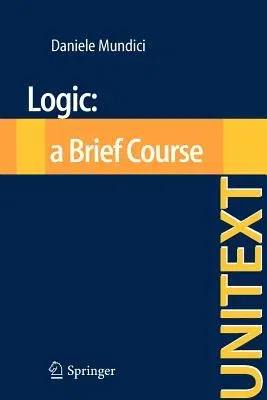Daniele Mundici
(Author)Logic: A Brief Course (2012)Paperback - 2012, 2 February 2012

Qty
1
Turbo
Ships in 2 - 3 days
In Stock
Free Delivery
Cash on Delivery
15 Days
Free Returns
Secure Checkout
Part of Series
Unitext: La Matematica Per il 3+2
Part of Series
Unitext
Part of Series
Unitext / La Matematica Per Il 3+2
Part of Series
La Matematica Per Il 3+2
Part of Series
Matematica Per Il 3+2
Print Length
130 pages
Language
English
Publisher
Springer
Date Published
2 Feb 2012
ISBN-10
8847023602
ISBN-13
9788847023604
Description
Product Details
Author:
Book Edition:
2012
Book Format:
Paperback
Country of Origin:
US
Date Published:
2 February 2012
Dimensions:
23.39 x
15.6 x
0.79 cm
ISBN-10:
8847023602
ISBN-13:
9788847023604
Language:
English
Location:
Milano
Pages:
130
Publisher:
Series:
Weight:
213.19 gm

